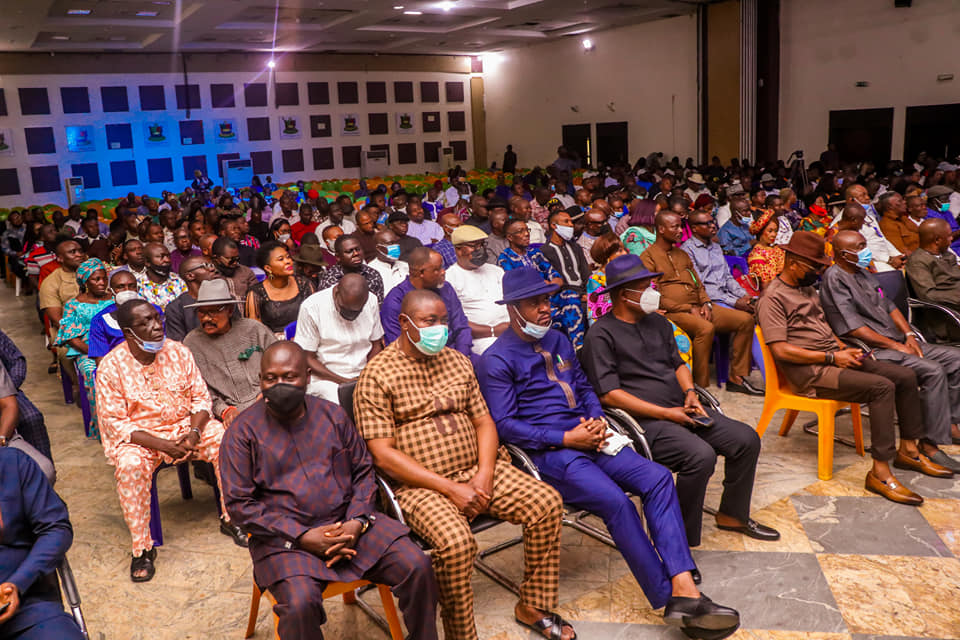Niger Delta
Bayelsa CJ Hails Diri On Judicial Autonomy

Bayelsa State Chief Judge, Justice Kate Abiri, has commended Governor Douye Diri for granting the state judiciary financial autonomy.
Justice Abiri who stated this on Wednesday in Yenagoa during the commissioning of a renovated court premises and an adapted Lady Justice statue, said judicial autonomy had enabled it to function optimally
The Chief Judge, who commended Governor Diri for prompt release of funds for the judiciary to enable it meet its financial obligations, noted that in her years of service, this was the first administration that had given the judicial arm of government the free hand to manage its resources.
“The commissioning of the newly renovated court premises and the Lady Justice statue was made possible by the appreciable implementation of the financial autonomy in Bayelsa State by Governor Diri.
“In my many years as the head of the judiciary, this is the first time we have been given a free hand to fully manage our resources and build to our satisfaction.”
In his response, Governor Diri said he believed the judiciary should be given financial autonomy to enable it function effectively.
According to him, as a democrat, he believes the only way for democracy to thrive is to ensure checks and balances and the separation of powers of the arms of government.
The governor also called for more collaboration among the various arms of government to work in synergy to achieve common goals.
He commended the judiciary for making judicious use of the funds at its disposal, which led to the completion and commissioning of the project.
“I believe in the doctrine of Separation of Powers and, of course, checks and balances. That is the only way our developing democracy can be fostered here in Nigeria. So, I believe that the judiciary should have its autonomy to do what we are about to commission today; autonomy to manage its resources even though we all know that the arms of government are one and the same.
“For us as a state, we cannot afford at this time to be working at cross purposes, particularly the three arms of government. This is the time that we need each other. This is the time we need to function as one so that government as one body will be able to deliver the expectations of the people of Bayelsa State.”
Niger Delta
NPC Unveils Digital Registration System In Delta

Niger Delta
Police Uncover Suspects’ Armoury … Recover Weapons In Delta

Niger Delta
Police Caution On Lawless Protests On Court Matters In A’Ibom

-

 Education5 days ago
Education5 days agoElga boss tasks law students on academics strides
-

 News2 days ago
News2 days agoAmend Constitution To Accommodate State Police, Tinubu Tells Senators
-

 Politics2 days ago
Politics2 days agoSenate Urges Tinubu To Sack CAC Boss
-

 News2 days ago
News2 days agoDisu Takes Over As New IGP …Declares Total War On Corruption, Impunity
-
Business2 days ago
President Tinubu Extends Raw Shea Nuts Export Ban To 2027
-
Business2 days ago
Crisis Response: EU-project Delivers New Vet. Clinic To Katsina Govt.
-
Business2 days ago
President Tinubu Approves Extension Ban On Raw Shea Nut Export
-

 Business2 days ago
Business2 days agoPENGASSAN Rejects Presidential EO On Oil, Gas Revenue Remittance … Seeks PIA Review

